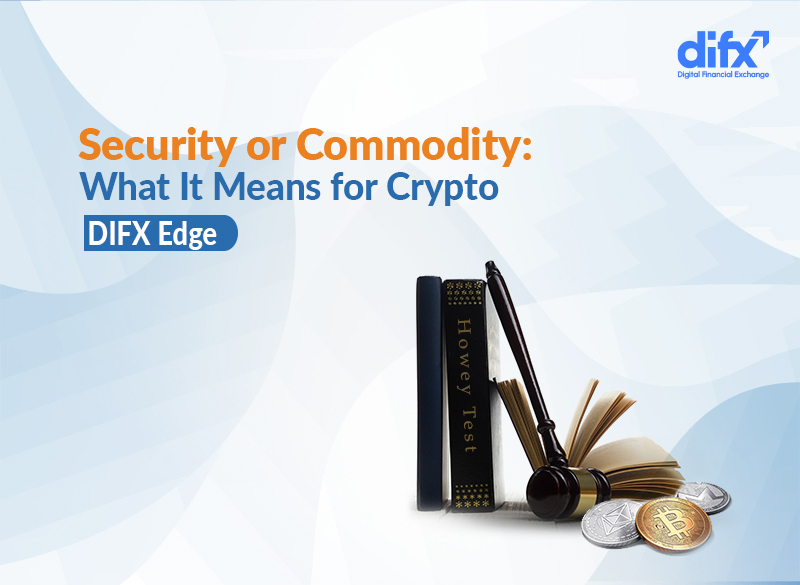A few days ago, Gary Gensler, the head of the US Securities and Exchange Commission (SEC) made some comments regarding Ethereum’s shift to a proof-of-stake (PoS) network and how it can change Ether’s regulatory status within the US, bringing it to the outcast group of cryptocurrencies labelled as securities within the country.
Even though Gensler didn’t mention Ethereum explicitly, many believed that the coin was the main target of his comment. The news put some downward pressure on the price of Ether, adding to its bearish sentiment after the relative uncertainty of The Merge.
In 2019, Heath Tarbert, the chairman of the US Commodity Futures Trading Commission (CFTC) at the time, labeled Ether as a commodity, putting it in the same category as Bitcoin. This led to Ether futures becoming tradable within the US market under the supervision of CFTC.
Rostin Behnam, the current chairman of CFTC, has also reiterated the same comments, confidently believing that Ethereum is a commodity, like Bitcoin. Just recently, he told the U.S. Senate Committee on Agriculture, Nutrition, and Forestry that CFTC is the right agency to regulate the digital asset market.
However, what is a security or commodity and how do they differ in nature? How these two major agencies can decide which crypto asset falls under which jurisdiction? Or most importantly, why does it matter for cryptocurrencies to fall under one category or the other?
A Brief Review of Securities and Commodities
Simply put, a security is a financial instrument that provides profits for its holders, and its value changes based on the actions of a third party, like a company. Stocks are the most common form of securities.
Let’s say you buy the shares of Company X. The main idea for your investment is to make some profits as you believe in the company’s value. Company X publishes its quarterly report which shows better results than predicted in the previous quarter. This can lead to an increase in the price of shares, meaning that the company’s actions had an effect (positive in this case) on the price of the asset you’ve bought (the shares). The share of Company X is considered a security as it meets the definition of one.
A commodity, on the other hand, is a primary product or material, such as oil, gold, or coffee. In today’s markets, commodities are predominantly traded online through derivatives markets which allow you to bet on the price of a commodity without buying the actual asset.
But, how can we define a financial asset as a security or commodity?
Howey Test to the Rescue
Howey Test is essentially the four criteria that the US Supreme Court introduced back in 1946 to determine if an investment or transaction can be named an “investment contract” and be considered as a security. Here are the 4 prongs of the Howey Test:
- 1. The Investment of Money: when we buy an asset in exchange for value, either in form of fiat currencies (like the dollar) or other assets
- 2. In a Common Enterprise: there are different ways to define this. It typically exists when the profits of the investor and those offering the opportunity are linked
- 3. With Reasonable Expectation of Profits: why are we buying the asset? Is it because we want to make money or to save our money by investing it in something more, let’s say, stable? If it’s the former, then our investment will meet this prong of the Howey Test
- 4. Derived from Efforts of Others: does the effort of others, like other investors, have an effect on our investment or profits?
What Gensler pointed out after the United States Senate Committee on Banking, Housing, and Urban Affairs hearing were the last two prongs as the new consensus algorithm of the Ethereum blockchain would allow users to stake their Ether and earn profits:
“From the coin’s perspective…that’s another indicia that under the Howey test, the investing public is anticipating profits based on the efforts of others”
What It Means For Cryptocurrencies
Just recently, two new bills were proposed to regulate the digital asset landscape within the US market: the Digital Commodities Consumer Protection Act of 2022 which asks for the CFTC to “oversee the spot digital commodity market” and the Responsible Financial Innovation Act which aims to regulate the digital asset market.
As the SEC and CFTC are finding their way (and territory) around the crypto coins, you may wonder:
What does it really mean for the crypto space?
Securities, in general, have stricter rules and regulations than commodities and that’s the main reason why the crypto market is hoping for the assets to stay under the CFTC’s jurisdiction. If a specific asset is declared as a security, it has to be registered with the SEC and can not be offered to the public otherwise. Additionally, any other platform offering that said crypto asset in the US market should register with the SEC or delist it from its platform.
We’re probably going to witness some quarrels in the upcoming months as the SEC and CFTC continue their negotiation over the nature of crypto assets. Hopefully, it all would lead to a clear regulatory framework for the US crypto market and set an example for other markets to follow.

